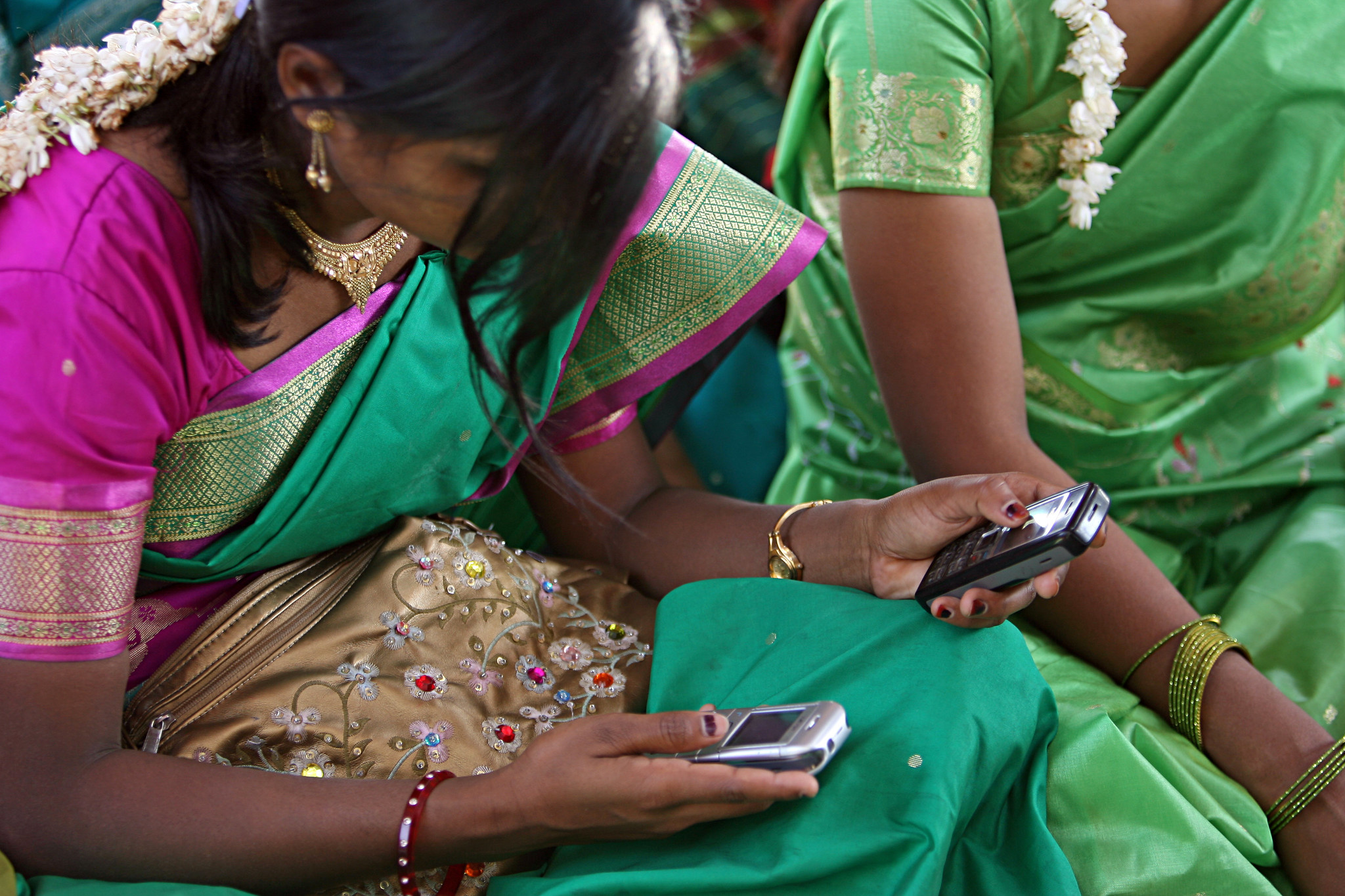Posted by A. Mani
Editor’s note: #DesiSTEMinist is a campaign to celebrate women in the field of STEM and highlight their contributions.
“We can disagree and still love each other unless your disagreement is rooted in my oppression and denial of my humanity and right to exist.”
-James Baldwin
It is well-known that women (including queer women, and trans women) face systemic discrimination, sexism, and genderism (a belief that gender is a binary, or that there are, or should be, only two genders) in social and professional settings. STEM spaces, in particular, have their own share of the problems mentioned and many of them have their own unique expression. Most of the conservative so-called academics in India live in denial. In this article, I offer some higher order hints about navigating and surviving in such spaces in India with some stress on problem identification.
Apart from the basic requirements for STEM (research, practice and learning), such as hard work, dedication, a certain level of involvement, some aptitude, and clarity of thought it is necessary to have an understanding of the destructive effects of patriarchal dynamics, capitalism, religion, related intersectionality and their retrograde dialectics. Women and girls can and should use a number of individual and collective methods to counteract the crippling effects. Further, given the essentially anti-STEM and anti-education stance of right-wing corporate-controlled central Governments, it is important to think of careers, and socioeconomic relations outside the virtual jails of their creation.
It is necessary to have an understanding of the destructive effects of patriarchal dynamics, capitalism, religion, related intersectionality and their retrograde dialectics.
To start with, it is best to live a scientific and rational life that is as self-consistent as is possible. As religion has always been the tool of the patriarchy, a pro-active anti-religious or at least irreligious attitude can help tremendously in furthering a career in STEM. It may be noted that a number of studies in applied cognitive psychology and allied disciplines show that a poor understanding of the physical world is linked to religious and paranormal beliefs.
For feminist praxis, it is necessary to be clear about the basics of gender and sex from a scientific perspective. From a modern scientific perspective, the sex (or biological sex) of a person is best seen as a tuple of parameters corresponding to hormonal, brain, clinical, chromosomal, physical, and epigenetic sex, and more. Gender is a plural term that refers to gender identity, gender expression, and gender as a social construct. Gender identity of a person is the person’s innate sense of gender and is intrinsic to the person in question. Queer women and trans women need to be more agile while fighting discrimination because conservative academics are transphobic and suffer from genderism.
Also read: 10 Women In STEM Whose Innovation In 2018 Deserves Your Attention
Sexual harassment (SH) is unwelcome sexual conduct that makes a person feel offended, humiliated and/or intimidated in workplaces. The reaction must be justified. Examples include unwelcome touching, hugging or kissing, staring or leering, suggestive comments or jokes, sexually explicit pictures or media, insults or taunts of a sexual nature, misgendering, sexually explicit emails or SMS messages, accessing sexually explicit internet sites, inappropriate advances on social networking sites, unwanted invitations to go out on dates or requests for sex, intrusive questions about an employee’s private life or body, unnecessary familiarity, such as deliberately brushing up against someone, physical assault, indecent exposure, sexual assault, stalking or obscene communications.
Education and open communication about SH policies adopted and complaint handling processes are essential—checking on policies adopted at STEM organisations is a great idea. It should be noted that conservative, brainwashed women academics may not be helpful in handling SH cases.
Checking on sexual harassment policies adopted and the complaint handling processes at STEM organisations are essential.
Women raised in
Studies also confirm that math anxiety of (predominately female) elementary teachers have a detrimental effect on the girls in their classrooms, teachers under-rate the abilities of girls when compared with equally performing and behaving boys, and diminished teacher expectations of girls in math may have a detrimental
Girls are more strongly conditioned to obey rules and authority. Therefore, they tend to be less bold in mathematics—a prerequisite for solving non-routine problems. A related abstraction is that of impostor syndrome—the feeling that the perceived unknown shortcomings would be discovered. This leads to less job satisfaction, an excess of effort in simple tasks, issues in collaboration, avoidance of challenges, and settling for lower pay – many studies confirm as much. The syndrome can be
In Indian societies, women are expected to provide unpaid emotional labour, make way for men (so they can move up), and put with their mansplaining—these are typically built into the education on ‘good manners‘. For example, the first may include lending a sympathetic ear to hurt male pride, and the second may mean endless trivial chores in the lab/research organisation. It is important to relearn or reprioritise a number of so-called ‘good manners‘ that relate to these.
Mansplaining in any field including the sciences reflects society’s hidden biases. It may present itself as an excess of unnecessary explanations, sometimes under the garb of good intentions, from men. Recent large sample studies show that women get interrupted twice more often than men during technical presentations. It may result in women and femmes internalising sexism (which in turn can lead to women looking down upon and being unsupportive towards other women). For example, statements like “she is just one of the guys” fall under the category.
The sexism behind mansplaining stops women and femmes from succeeding because it has its roots in benevolent sexism. The latter in turn is based on the premise that men are there to take care of women. Last but not least, mansplaining perpetuates rape culture. A partial solution would be to cut mansplainers short in their act.
Microaggressions are small, subtle, often subconscious actions that marginalise people in oppressed groups. It is defined as brief and commonplace daily verbal, behavioural, or environmental indignities, whether intentional or unintentional, that communicate hostile, derogatory, or negative racial slights and insults. Many microaggressions exist because the microaggressors do not understand the basic nature of the act and lack empathy.
Also read: Meet Shubhanshi Gaudani: The Robotics Champion| #DesiSTEMinist
Common Indian microaggressions try to convey messages such as “women’s bodies are open to
Author’s Note: Citations relating to claims made in this article may be found in the slides of my talk “I Know, Therefore Can I Win? – Intersectional Aspects of Problems Faced by Women in Higher Level Mathematics” at IIEST, Shibpur on 8-10th January, 2018.
A. Mani is a researcher in algebra, logic, rough sets, vagueness, mereology and foundations of Mathematics. She is a leading researcher on the foundations of rough sets and has published over 1050 pages in international peer-reviewed journals. An out and proud lesbian, and a feminist, she has also published on gender issues. Teaching and development of courses in ML, mathematics, and statistics, and part-time services in soft computing, GNU/R, and free software, have also been part of her survival strategies. She has a doctorate in pure mathematics from the University of Calcutta, and is also a senior member of the International Rough Set Society. Her homepage is at http://www.logicamani.in
About the author(s)
Guest Writers are writers who occasionally write on FII.




